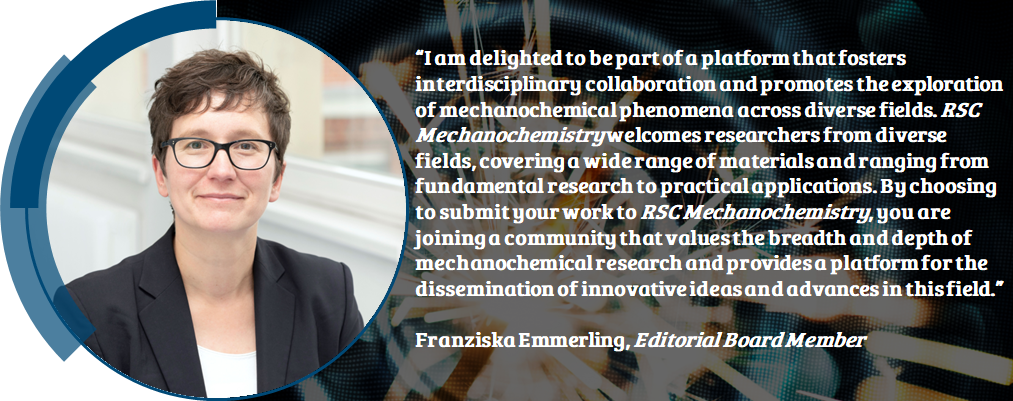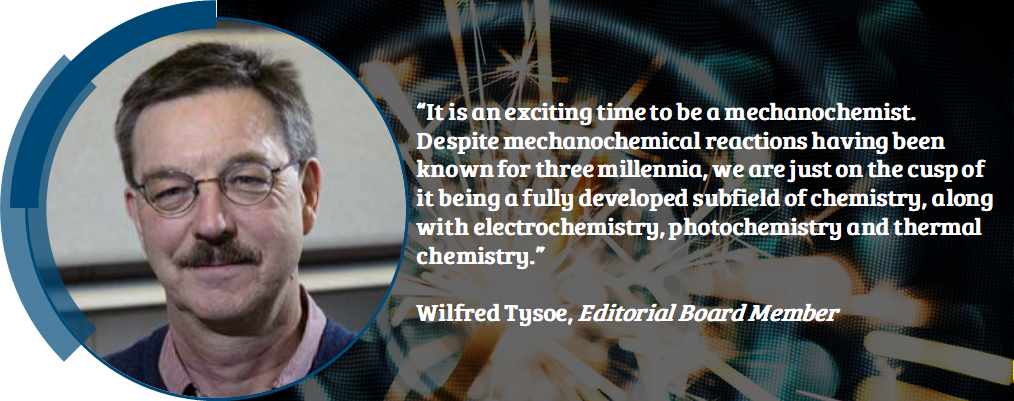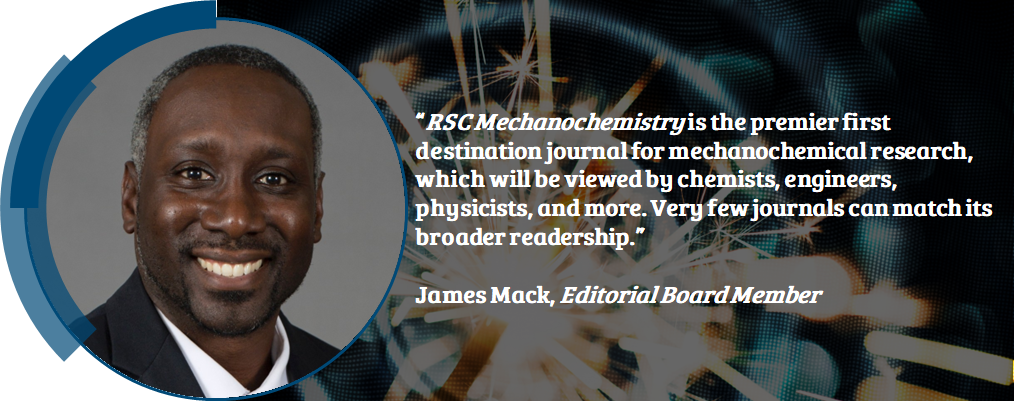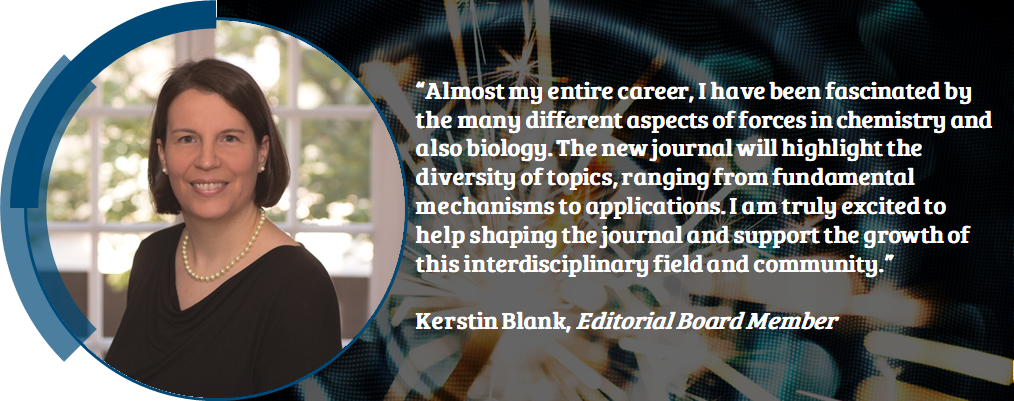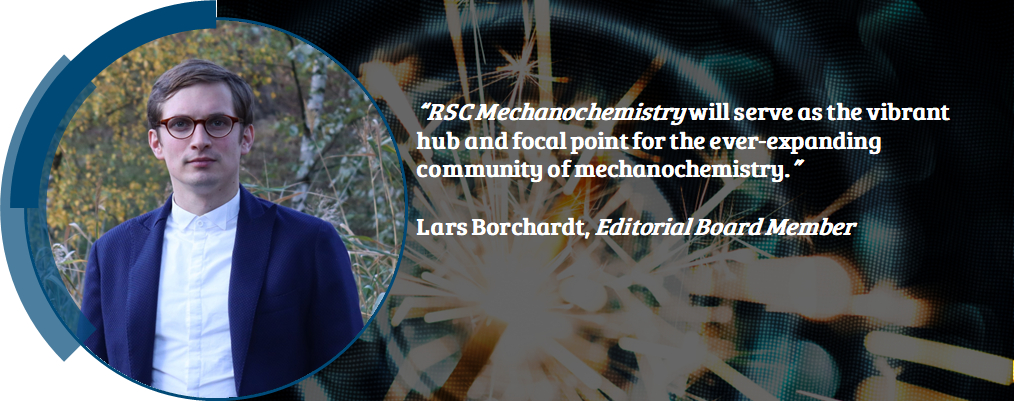
We are delighted to introduce to you Professor Evelina Colacino, University of Montpellier, France, as one of our inaugural Associate Editors for RSC Mechanochemistry.
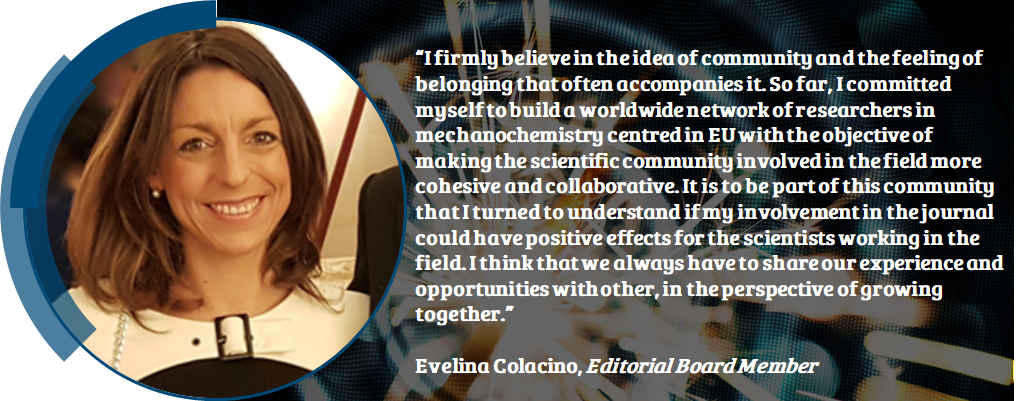
Learn more about Evelina Colacino
Evelina Colacino received her double Ph.D. (with European Label) in 2002 at the University of Montpellier II (France), and at the University of Calabria (Italy). Associate Professor of Organic Chemistry at the University of Montpellier (France), she is a member of the International Mechanochemical Association (IMA) and on the Advisory Board of the Green Chemistry Commitment. She promotes sustainability in higher education by integrating green chemistry at undergraduate level in organic chemistry courses, teaching laboratories and across the sub-disciplines of chemistry, with a special focus on the fundamentals and the practice of mechanochemistry. Her main research activities concern the development of eco-friendly mechanochemical processes for the preparation of value-added compounds for the industry, with a main focus on active pharmaceutical ingredients.
Read some of her recent publications:
Mechanochemistry: New Tools to Navigate the Uncharted Territory of “Impossible” Reactions
Federico Cuccu, Lidia De Luca, Francesco Delogu, Evelina Colacino, Niclas Solin, Rita Mocci and Andrea Porcheddu
ChemSusChem, 2022, 15, e202200362
Assessing the Greenness of Mechanochemical Processes with the DOZN 2.0 Tool
Pankaj Sharma, Caleb Vetter, Ettigounder Ponnusamy and Evelina Colacino
ACS Sustainable Chem. Eng., 2022, 10, 5110-5116
Andrea Deák, Csaba Jobbágy, Attila Demeter, Ladislav Čelko, Jaroslav Cihlář, Pál T. Szabó, Péter Ábrányi-Balogh, Deborah E. Crawford, David Virieux and Evelina Colacino
Dalton Trans., 2021, 50, 13337-13344
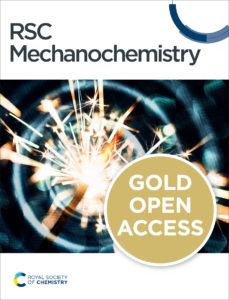 |
RSC Mechanochemistry offers you an inclusive and dedicated home for the ideas, scientific language and approaches that cut across the many disciplines mechanochemistry touches. Here we are seeking to build knowledge, as well as foster innovation and discovery at this forefront of chemistry. Whether you are seeking to understand the fundamentals of mechanochemistry, or you are excited by its applications and potential, this journal is for you.
|


